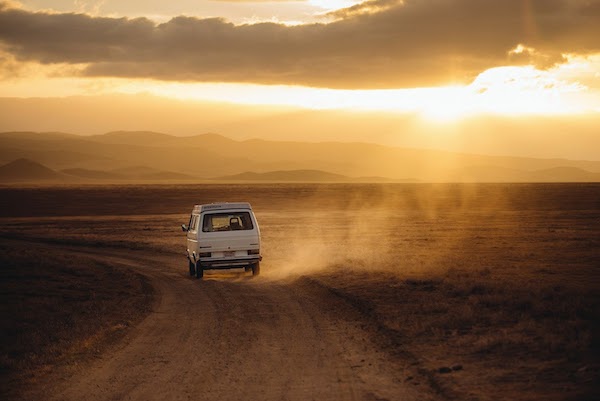There are multiple pros and cons attached to a vacation on the road with your family, determining whether it’ll be a pleasant respite or the holiday from hell.
For instance, being in close quarters with one another during an RV trip gives you and your family more opportunities to bond. On the other hand, it also gives you more of a chance to get in each other’s way. Furthermore, while on the road, you can tuck into your favorite snacks and food, and by not dining at restaurants, you can save a lot of money. However, you’ll need to be mindful of whether there’s enough left for everyone else. Especially when you’re in a remote location, and there are no shops or markets nearby that sell food.
All in all, there’s a lot to consider to keep everyone happy on your family vacation. But first of all, your top priority is to make sure everyone is safe and secure. For ideas on how you can take care of the safety and organization elements before you travel, below are some pointers to consider.
Check Over The Campervan
Whether the campervan is brand new or second-hand, check it over a few weeks before you plan to travel to ensure it’s in good working order. Your motor home will be your accommodation and transport. It’s responsible for carrying your family, luggage, and should keep you safe and sheltered at night. So, it’s vital to make sure it’s fit for the road and its purpose before you travel. Below are some of the components you may want to look at before you go;
- Check the battery – A recreational vehicle takes a lot of battery power to start-up. It supports the equipment and mod-cons you’ll be using on your travels. Due to the extended use of the battery, check it’s working well and fully charged before you leave. To better support, the usage of electrics and cooking equipment in the vehicle, look at deep cycle batteries to accompany your RVs’ main battery. They are created specifically for RV, campervans, and caravans, and hold a large volume of power for a long duration.
- Oils and fluids – The vehicle’s oil should be clean and topped up enough to adequately lubricate your engine and car parts throughout your journey. Furthermore, don’t forget to check and top up your brake fluid to the specified line. The brake fluid should be clear from dirt and debris to work effectively on your brakes, without causing damage.
- Tires – Should your tire burst on your travels, having a tire at the ready, attached to, or inside your transportation is a huge help. Additionally, before you travel, check the wear on the tires to detect any bulges or cuts. If you’re planning on driving far and the tires are very worn, consider replacing them.
- Brakes – Testing your brakes is compulsory before you go away. For instance, if they feel spongy or soft, call a mechanic to assess them as they may need replacing.
Light Luggage
However tempting, try to avoid packing anything and everything into your suitcase for your travels. And instead, firstly, write down all the things you think you and your family might need. Once you’ve finished, go back over the list and see what you can cut out, until you’re left with the essentials. Keeping your luggage light while on the road is essential for many reasons;
- Less luxury, branded clothing, and electronics mean you’ll be less of a target for potential burglars.
- Pack light for your trip and the fuel for your motorhome shall last a lot longer.
- Taking fewer things means less mess in the RV. Because you’ll be living in such a confined space together, it’s essential to keep it as organized as possible.
- The things you’ll need on your travels amounts to more than just clothes and toiletries. You’ll need room for cleaning products, essential cooking utensils, and food too.
By being mindful of how much you’re planning to take, you can prevent sapping up storage space that should be prioritized for the necessities.
Breakdown Insurance
During your road trip, the RV could break down. To prevent the prospect of unnecessary stress, source and book breakdown insurance before you go away. It’ll help your vehicle, and your family get back on the road. Plus, it will save you a lot of money from purchasing emergency breakdown services. However, before you buy the insurance, ask the breakdown provider if they will cover your RV in the destination(s) you’re heading through and to.
While on the subject of breaking down, it’s also essential to have a safety kit ready. It’s wise to include;
- Food that does not perish quickly.
- High visibility jackets in case you need to stop someone for help at night and a flashlight.
- Take a portable charger to incase your phone dies. It will mean you can get in touch with your breakdown company or emergency services.
Try Out The Camper Vans’ Facilities
Rather than leaving it until the day that you’re planning to travel to begin using the RV, test out its facilities and equipment beforehand to check if and how it works. For example;
- Use the oven to test how practical it is, and decipher what meals are possible to make with it.
- Flush the toilet – Does it flush okay, and can you remove the waste with ease?
- Use the shower – Check how powerful the shower is and how much water it uses. Then decide if you should all agree to a specified time for shower use for each family member to avoid quickly using all the water.
- Start strategically storing food in the cupboards to see how many days or weeks worth you can get in there before your travels.
A trip well planned, with safety and organization in mind, is much more likely to be a happier, stress-free, and a budget-friendly one. If you’re unsure how to check your vehicle before your travels, it’s advised to book an appointment with a qualified mechanic. Furthermore, adequate breakdown cover, and testing your RV before you and your family head away, can save a lot of fuss and anguish during your trip.


